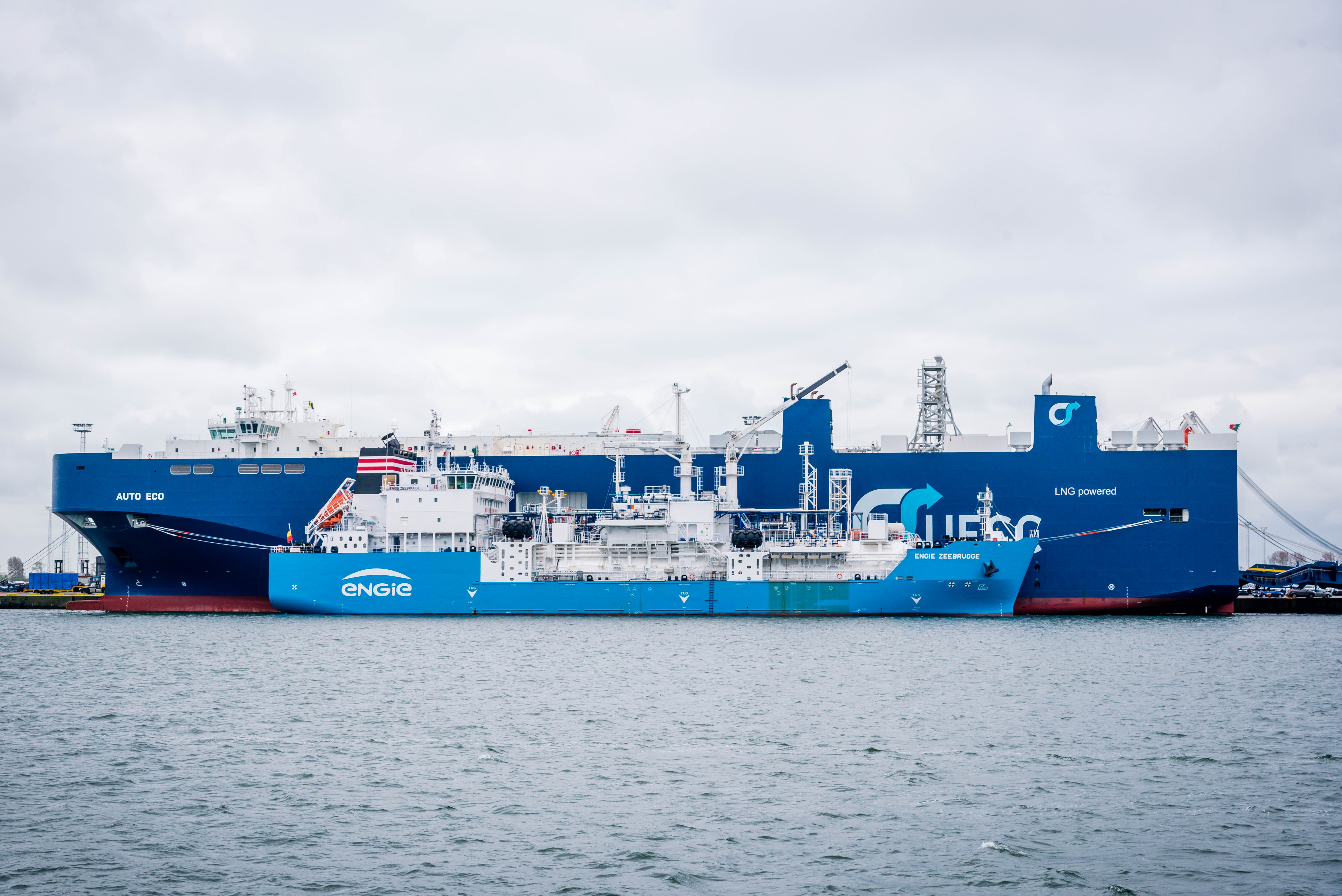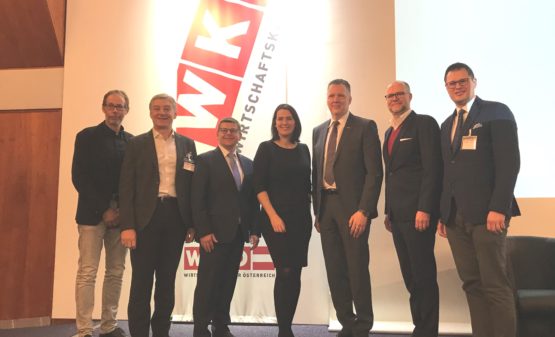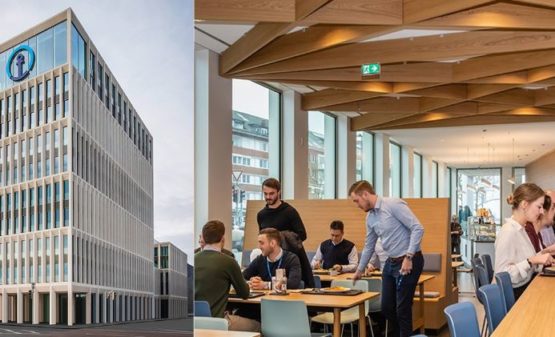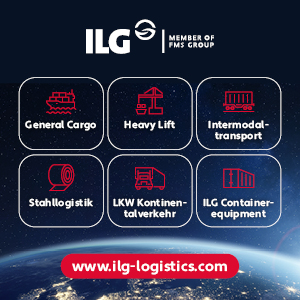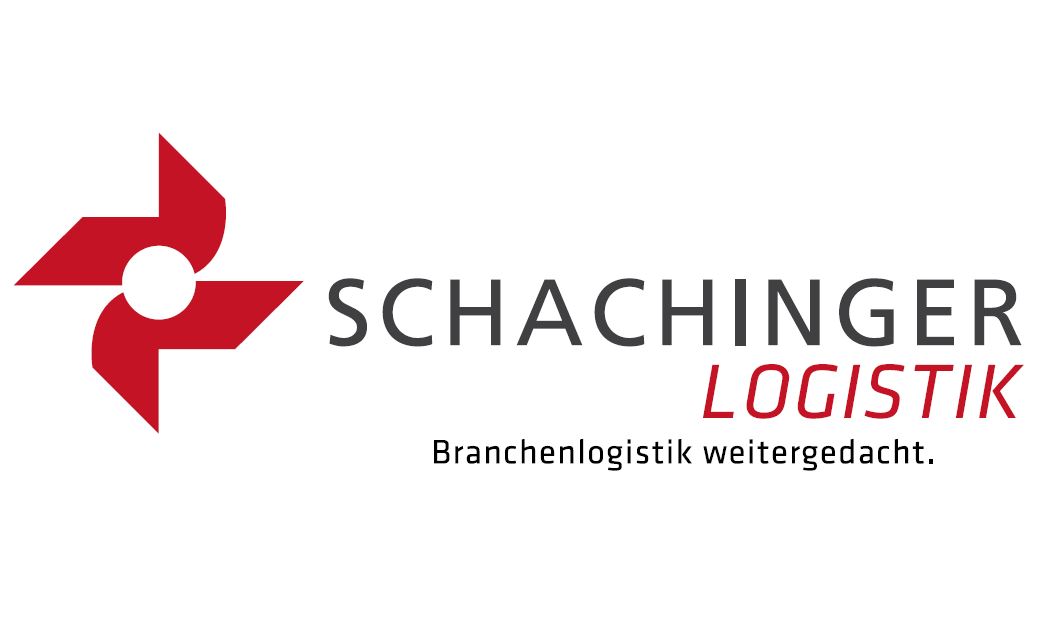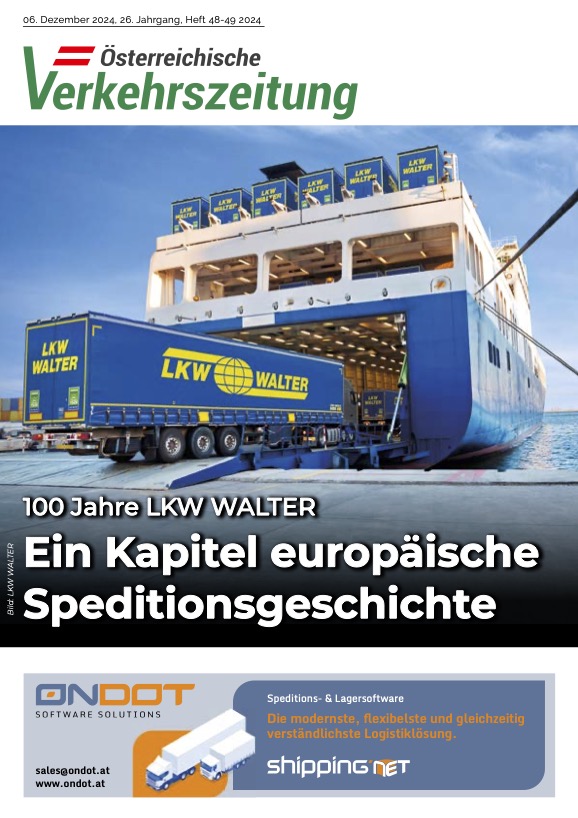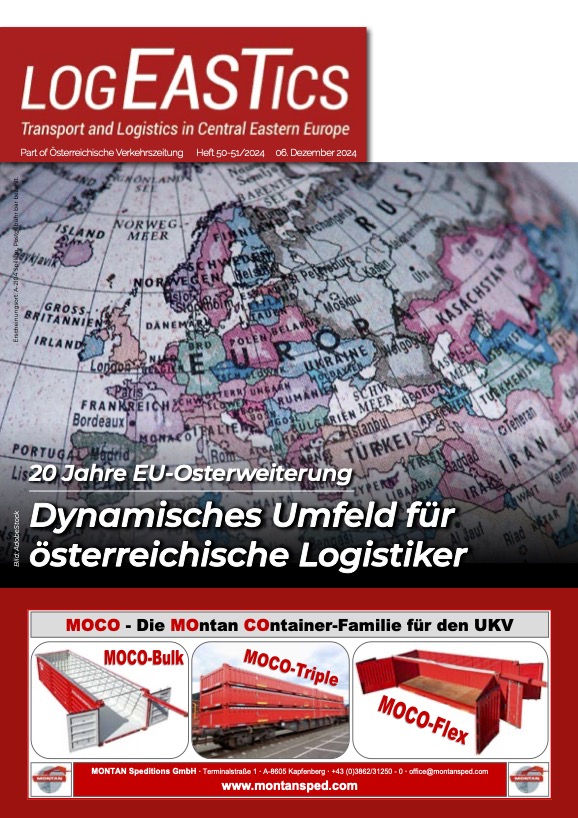The bunkering vessel “Engie Zeebrugge” performed in the port of Zeebrugge, Belgium, its first deliveries of LNG (liquefied natural gas) as a marine fuel to M/V Auto Eco and M/V Auto Energy, the two new gas-propelled pure car and truck carriers (PCTCs) of UECC. The LNG bunkering operations were conducted at the same time that the cargo operations for PCTCs were taking place.
“Engie Zeebrugge”, which is the world’s first purpose-built LNG bunkering vessel, arrived in Zeebrugge at the beginning of April after delivery from Hanjin Heavy Industries & Construction Co. Ltd in Busan, South Korea, and a 38-day maiden voyage. She is now executing a weekly service to the PCTCs of UECC and is the world’s first LNG bunkering vessel to perform regular ship-to-ship bunkering services. “Engie Zeebrugge” loads LNG at Fluxys’ LNG terminal which recently commissioned its second jetty specifically designed for also receiving very small LNG carriers.
“Engie Zeebrugge” is jointly owned by Engie, Mitsubishi Corporation, NYK, and Fluxys. With an LNG capacity of 5,000 m3, she will service all types of shipping customers in Northern Europe from her home port of Zeebrugge, under the brand Gas4Sea. This commercial brand was launched in September 2016 by Engie, Mitsubishi Corporation, and NYK to promote and develop the use of LNG as a sustainable alternative to conventional oil-based marine fuels.
The first ship-to-ship bunkering operations are a key milestone in the development of the nascent LNG bunkering market, which needs the collaboration of many stakeholders to gain a foothold: industrial companies, manufacturers, regulatory bodies, port authorities, and shipping companies. The joint efforts of the companies and authorities involved seek to curb carbon and health impacting emissions in shipping and come in support of the European alternative fuels strategy for sustainable mobility.


